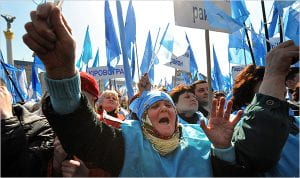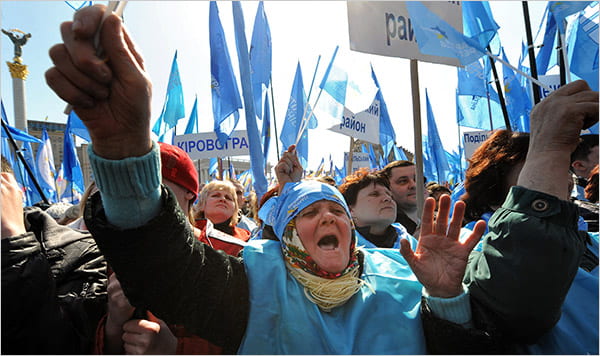All refugees are welcome…well, not all, just those who fit the criteria. In the last decade, the plight and the rights of refugees has been a major topic of conversation and tension. Whether they’re escaping war or persecution, refugees are a vital part of the local and global economies, though people are deeply divided over how to handle refugee crises. There is a constant question on whether refugees should be welcomed, what resources should be given, how much aid should be provided, and how much of one’s human rights and physical security should be given. The UNHCR defines Refugees as “people who have fled war, violence, conflict or persecution and have crossed an international border to find safety in another country.” The definition does not change a refugee’s status based on race, ethnicity, or religion. However, the ways in which they are received by host countries very much depends on their origin, religious beliefs, and appearances. It is essential to provide equal assistance and support for all refugees, not exclusively those who align with a country’s beliefs, ethnicity, or race. Looking at the world and media’s contrasting responses in relation to the European refugee crisis of 2016 and the current Ukrainian refugee crisis, a question arises of whether there are specific requirements that make certain refugees more deserving than others.
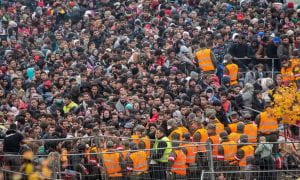
 Governments & Individual’s Responses to Refugees
Governments & Individual’s Responses to Refugees
Each country has its own legislation regarding how to govern the state and circumstances of accepting refugees. These laws and policies are heavily influenced by politicians and citizens. These policies have been found to change depending on the source of the refugee crisis. For instance, Japan breaks the news by not conforming to its regulations on accepting refugees and immigrants. This shocks many, as it is a huge contrast to its former response and actions taken in the past. About 1,800 Ukrainian refugees fled and went to Japan. Evidently, the community and country’s reaction reflected an “outpouring of sympathy for the Ukrainians.” It is seen that refugees from Ukraine were considered an exception to the government, apparent from Japan’s gesture of granting refugee status to 74 applicants, which is considered a high record for Japan, never done before. For a long time, Japan has not identified nor considered itself as a country that welcomes immigrants or refugees. They attempted to maintain a nation that houses one ethnic group, one culture. The 74 applicants who were granted refugee status can be compared to Heydar Diman’s story. Diman fled the Iranian persecution and has resided in Japan for over 30 years. He became accustomed to their culture and fluent in the language. Throughout that period, he repeatedly filed for refugee status; he was rejected each time and detained for more than four years.
Europe has been the center of focus when looking at government and citizen responses to the refugee crisis. The director of the Migration Policy Centre, Andrew Geddes, highlighted the dramatic difference between the “very warm welcome” given to Ukrainian refugees compared to the unwelcoming “hostile” responses to the refugees from the MENA region. Countries within the European Union (EU), such as Poland, Hungary, and the Czech Republic, have the highest acceptance rates of Ukrainian refugees yet were the “most resistant” when it came to the MENA region, such as Syrians. The resistance continued, as shown when most of the Syrian refugees in Europe were only allowed to enter four years after the war began once the EU struck a deal with Turkey. Poland accepted Ukrainians with open arms, hosting about 1.2 million refugees (about the population of New Hampshire). Whereas, when the Syrian refugee crisis occurred, Jaroslaw Kaczynski, a strong political figure in Poland, stated in 2017 that to host Syrian refugees would be “dangerous and would completely change our culture and radically lower the level of safety in our country.” The response to Ukrainian refugees was more open and accepting when compared to the past refugee crises that involved Europe. The Robert Schuman Centre, EUI, found different responses to how European citizens felt towards refugee crises. There are statistical charts that display the responses toward allowing Ukrainian refugees as opposed to the acceptance of Syrian refugees. By all accounts, these charts resemble the harsh reality of the unequal treatment provided to refugees holding similar statuses of different origins, hence the willingness to accept Ukrainian refugees rather than the Syrians.
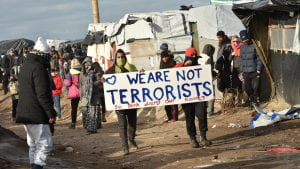
The Media’s Response to Refugees
The World is One News (WION) released a video in February highlighting the contrasting responses of the media and government officials when comparing the refugee crises. Within the media, there have been blatant instances of racism, stereotypical judgments, and discrimination when discussing the urgent need for help in aiding Ukrainian refugees. The quotes below have all been taken from the news broadcast calling out the biased news sources and anchors.
- A BBC expert stated, “it is very emotional for me because I see European people with blue eyes and blonde hair being killed” 1:10
- A journalist from NBC reported on live TV that “these are not refugees from Syria, these are Christians, they are white, they are very similar to us.” 2:07
- A news anchor on Al Jazeera emphasized that Ukrainian refugees differ from the traditional refugees because “these are prosperous middle-class people…these are not obviously refugees trying to get away from areas in the middle east that are still in a big state of war. They look like any European family that you would live next door too.” 3:33
- Prime Minister Kiril Petkov of Bulgaria stated, “These people are intelligent; they are educated, people. …this is not the refugees we have been used to. People were not sure about their identity, people with unclear pasts, who could have been even terrorists.” 5:29
These statements and false representations highlight the discrimination within the media sectors and governmental individuals. It deems only certain refugees from specific areas as worthy of help. It is crucial to create unbiased coverage in the media since, at the end of the day, all these individuals require help. Viewing or reading false information created biased responses from citizens and individuals.
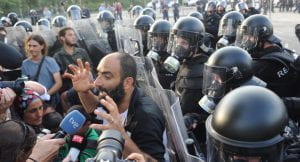
What Can We Do?
The most important thing is to recognize how crucial it is to eliminate biased statements bestowed by the media, politicians, and ourselves. All refugees hold the same status. Their definition does not change based on their appearance or where they come from. Awareness of the discrimination and selectivity that occurs within international communities can aid in stopping it. All refugees are worthy of help and protection. To learn more: Check out this guide on detecting bias in the media. Read more on the topic of refugees and immigrants, and some books can be found here.
